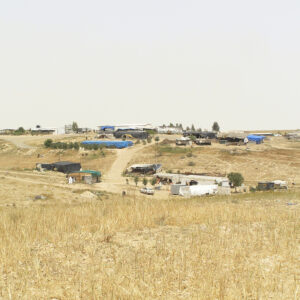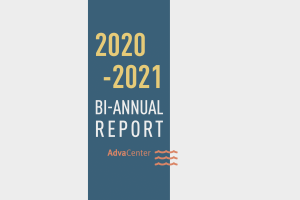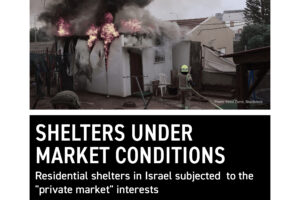Neglect of residents of the unrecognized villages is outrageous. The security threat prevents Bedouin citizens residing in the Negev from purchasing necessities, thus creating a threat of food insecurity and even hunger, which is liable to exacerbate if the present war continues
The exploratory study carried out jointly by the Forum for Coexistence in the Negev and the Adva Center on the subject of food insecurity in the “unrecognized” Bedouin villages in the Negev concluded with the following recommendation:
“It is crucial that a plan be designed for emergency situations in which residents of the villages are unable to access foodstuffs outside of their villages. Such situations will result in real hunger, as it appears to have occurred among some families during the Covid-19 epidemic.” (published in Hebrew, here)
Indeed, when the present war with Hamas broke out, civil society organizations working in the Negev warned that residents of the unrecognized villages were on the brink of hunger. Even during normal times, they cope with food insecurity, along with lack of infrastructure, access roads and regular provision of water and electricity. Food insecurity in the villages stems from, among others, the need to go elsewhere in order to obtain the necessities of life. Thus, in times of emergency, when it is impossible to go outside the villages, the danger of hunger is imminent.
Civil society organizations have tried to make up for the inaccessibility of necessities – collecting and delivering foodstuffs to a distribution point in the village of Hura, but their volunteers contend that distress is rampant, and civil society initiatives will not be able to supply the enormous needs for long. They are calling on the state to act to prevent hunger both immediately and in the long run.
Like other residents of the Negev, Bedouin residents suffered terrible losses following the Hamas attacks. At least 19 Bedouin citizens of Israel were murdered on the bloody day of October 7, 2023, among them a grandmother and her granddaughter from a missile that hit the village of Kochla. Others were murdered when they tried to save persons injured by missiles, and still others as they laboured in the fields of the Israeli townships around the Gaza Strip. In addition, six Bedouin citizens of Israel are among the kidnapped and missing, four of them from the same family – a father and sons who accompanied him to his job at the Holit Kibbutz. The body of another person who went missing – Amar Odah Abu Svila – a young man 25 years old — was murdered when he rescued two Jewish toddlers from Hamas bullets while they were in a family vehicle near the police station in the city of Sderot.
Neglect of residents of the unrecognized villages is outrageous. On October 7, 2023 – the day of the Hamas attacks, those villages did not have rapid-response squads, safe rooms or bomb shelters. The Iron Dome protective system defines the area in which the villages are located as “open areas” rather than “populated areas”, and thus missiles fired in their direction were not intercepted. In addition, in the absence of electrical infrastructure, air raid sirens were not regularly sounded. The Association for Civil Rights in Israel asked the relevant ministers and the Home Front Command to bring prefabricated bomb shelters and to set up alarm systems in the villages. On October 18, 2023, the Ministry for Social Equality announced that together with the Home Front Command, it would act to “close the protection gaps in the Negev Bedouin diaspora.”
The security threat prevents Bedouin citizens residing in the Negev from purchasing necessities, thus creating a threat of food insecurity and even hunger, which is liable to exacerbate if the present war continues. As if this were not bad enough, many of these citizens also lost their sources of income, making it difficult to purchase foodstuffs even if they were able to move freely and go to nearby towns with grocery stores.






